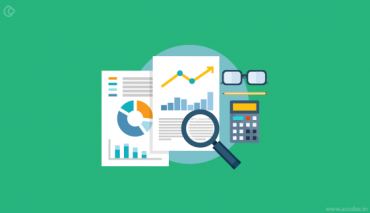Big data is a buzzword in modern business strategy; everyone knows that big data can provide crucial insights that can help improve internal functioning and provide the competitive edge needed to surge ahead in today’s world. In fact, big data is now the key source of decision-making for many businesses.
However, it is also important to know exactly what kind of data to collect, and how exactly to use it, according to the Digital Transformation Playbook. While the volume and variety of big data is what makes it so valuable, there are so many sources nowadays, that interpreting and analyzing this data can become pretty challenging. Big data brings in the kind of disruption that can revolutionize the way business operations are carried out; however it is vital that your business employs the right tools and processes to translate the data into actionable insights.
Once data collection is complete, saving and securing it is the next challenge; accurate distribution of the results to the important decision makers is next. This is followed by processing the data and converting the insights into action. You also need to update and process the database on a consistent basis for it to be valuable.
Though this may sound a bit overwhelming, remember that you need to follow two main strategies for digital transformation:
Customer Analytics
Collecting data on your customers allows you to learn all about your customers: their preferences, habits, their fears or dislikes and so on; this helps you to have meaningful engagement with them, boost sales, and also retain your existing customers while expanding your customer base.
Operational Auditing
This is equally crucial because it helps you to streamline your internal operations and processes, improve performance and point out where you can innovate.
The Data Summit of 2016 made some important observations which companies should keep in mind when they are setting out to employ big data analytics for their business:
#1. Keep things Simple:
Big data has thrown up numerous new technologies and terms, but don’t be daunted by them. ‘Polyglot persistence’, for example, is a much-bandied about term in big data parlance, but all it means is that you just select the technology best suited for the specific problem. Relational systems cannot be replaced by NoSQL systems, but just improved.
#2. Co-located data and integrated data are different:
By simply getting your data in one place (co-locating) you cannot integrate it. Another thing to remember is that different departments may have contradictory goals – this will not yield the optimal results. One department may want to take a huge risk and jump into a new project while another may be bent upon cost-cutting and minimizing risk. There needs to be good communication and understanding of the business goals by all departments for big data to be effective.
#3. Handling the DevOps Data Limitations:
DevOps being very high speed, creation, distribution and management of test data is a huge challenge, according to Kyle Hailey, technical evangelist at Delphix. He goes on to say that a major portion of the software development lifecycle goes in waiting for the data and in performing data tasks; this, however, can be managed with virtual data.
#4. Usefulness of the Cloud:
Thanks to the emergence of cloud, we are now able to handle large datasets; petabytes of data can be analyzed very easily today; this is something you could not even imagine, say 15 years ago.
#5. Beware of the fine print:
Before you sign the dotted line, carefully scrutinize the fine print and analyze the costs, and check if it’s affordable and worth the cost.
#6. Data is an asset:
You need to consider and treat data as an asset; examples are Uber surge pricing and Airbnb’s rental business.
#7. Research thoroughly about Blockchain:
The building block of bitcoin. IT has the power to revolutionize the way we do business today. It is basically a method of data recording; a digital ledger, if you will, of contracts, agreements, transactions or anything else that has to be recorded independently and verified. It is distributed across several hundred computers worldwide.
#8. Data virtualization can minimize duplication:
Data virtualization can minimize duplication, which is the main cause of data proliferation. This approach to data managements allows business to access and manage data regardless of where it is stored or how it is formatted. It provides a simple, united and cohesive view of business data in real time as required.
#9. Handle data governance in the data discovery process:
To start the administration process companies need to choose the definition of ownership and set up continuing observation of discovery methods. Business can use numerous strategies, ‘with enabling highly iterative self-sufficient IT along with utilizing intuitive visualization tools’ according to John O’Brien, principal analyst and CEO, at Radiant Advisors.
Here are some additional facts you need to remember:
- Big data requires a catalog – Maintain a catalog of information like the sets, attributes and sources of data; end users will be able to search easily, and approve or certify data sets for specific usages.
- Big Data has a variety of assets: The big data landscape includes assets like stream locations, sensor information for IoT, MapReduce jobs and so on. These are critical as they reduce the dependence on manual models, changing the governance assets and minimizing the scope for errors.
- Big data cannot often by separated physically: This means that you have to look for alternative methods to identify the sensitive data as well as the person/s to be put in charge of it. Governance methods need to keep this information.
- For value creation, big data needs to be combined: all the departments of an organizations who own different sets of data need to share the data so that the entire organization is able to access, analyze and utilize the data to enhance operational efficiency. Rules for the use of the data have to be explicitly set and the users must be made to understand it.
- Big data governance has to be collaborative and flexible: Big data governance required a bottom – up approach, necessitating a highly flexible, collaborative and clear operating model.it should be able to scale up because the volume and variety of data is constantly increasing.
- You need to use the right tools of automation: it is almost impossible to keep pace with the volume of data changes on a daily basis. No desktop tool or document sharing site will suffice, and hence automation is absolutely necessary; ensure you choose the application that specifically suits the purpose.’
- Big data is in constant use and is an operational necessity: data is the lifeblood of a modern business enterprise; so the platform and infrastructure on which it is hosted must be able to keep up with the changes and the ever increasing volume to access and process the data. If it is not reliable or secure enough, the business will not be able to make efficient use of the data or to acquire new sources of data to have a competitive edge.
Acodez IT Solutions is a leading player in the field of big data analytics in India offering valuable services to help your business grow. With clients from all over the world, making use of our expert team on big data management, web development solutions and digital marketing, there’s no doubt why we can’t become the right choice for you. To know more about what we do, contact us today.
Looking for a good team
for your next project?
Contact us and we'll give you a preliminary free consultation
on the web & mobile strategy that'd suit your needs best.






